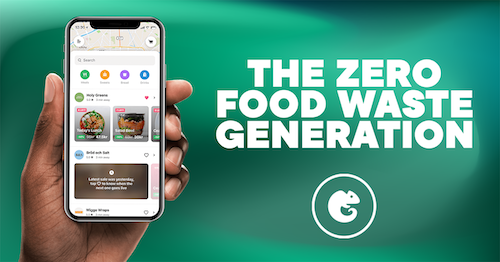In the future, when economists and business writers sit down to evaluate the impact of this moment, the overarching narrative will almost certainly focus on the idea of transformation. The adoption of new technologies has been accelerated at unprecedented scale and speed, and so have ideas.
This landscape has ushered in an era of hyper-personalisation and emerging channels. Businesses have scrambled to branch out, customers have met them halfway, and now we’re all on this journey together. The next chapter may take place in a bright and shining new world, but make no mistake: there will be no going back to the old ways of doing business.
Brands that have yet to adopt new solutions, or figure out how to best navigate the tumultuous landscape to reach the right person, in the right way, and at the right time, will struggle to keep up in the digital race. But, for award-winning Swedish company Karma, the winner of the race isn’t just who gets to the finish line first: it’s who’s strong enough to carry their partners across, too.
Karma’s story: Tackling an epic problem with digital solutions
The scope of Karma’s commendable mission – to eradicate 1.3 billion tonnes of annual food waste by connecting restaurants, cafes and grocers with consumers wanting to purchase surplus food – may be monumental, but its solution is granular: leveraging data.
It’s these data insights, collected from restaurants and grocers, that Karma has shared amongst all its partners, shedding light on common issues to help merchants become increasingly agile, connect with more customers, and optimise their businesses in the ‘New Normal’.
Indeed, in the current landscape, where many of Karma’s partners have watched offices close, city centres emptied, and foot traffic vanish, finding a way to reach a suddenly de-centralised customer base is vital, and Karma has used Salesforce Sales Cloud to determine where their efforts, time and budgets might be best directed.
In their goal to create the first zero-food-waste generation, Karma has utilised Salesforce’s platforms to navigate the bumpy present and make meaningful connections with customers. They also use Salesforce to measure calls, book meetings, find new opportunities, and track emerging leads. This leaves them better prepared to Lead Through Change in a post-pandemic world.
Focus, pivot, celebrate: How Karma is staying together
Salesforce may be powering Karma’s digital solutions, but it’s their employees coming together, even in an age of social distancing, that’s empowering the company.
Karma has transitioned from being an office-based organisation to a fully remote one, and they’ve never been more productive. One of the keys to their success – and this might be especially important for salespeople, whose typically outgoing and extroverted personalities are often at odds with lockdown-imposed isolation – is to stay connected as much as possible.
From using video conferencing for group exercises, yoga sessions, and daily lunches to the ringing of a virtual bell to celebrate business triumphs – no matter how small or large – Karma’s team has stayed together digitally. In a time when many organisations are trying to find the right formula for balancing employee wellness with business benchmarks, Karma is providing a shining example: stay focused together, win together, get through this together.
Of course, managing the current crisis and future-proofing a company requires more than just a focus on employee well-being and team-building: Karma has also had to adapt its business model, just like many other companies trying to make sense of this moment.
Karma offers delivery services and weekly food subscription boxes.
Two of their most transformative changes – offering delivery services and weekly Karma subscription boxes – have proved to be a resounding success, showing that a crisis, if properly managed, can spark enduring breakthroughs.
And, in tackling a huge climate and economic issue, Karma’s extraordinary mission and admirable ethos have shown that indeed, tomorrow promises to be a brighter and more sustainable place for all of us.
To see how your business can empathetically connect with customers in difficult times, check out our blog, How to Communicate With Customers in Times of Crisis. Then have a look at Salesforce Sales Cloud to see how it might not only help you manage this moment but launch you into a bolder future.





